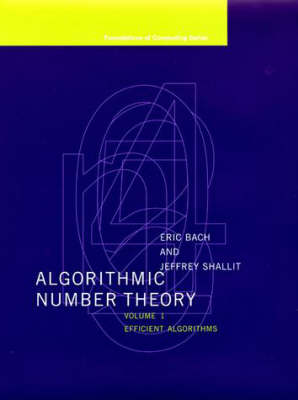Foundations of Computing
1 total work
Algorithmic Number Theory provides a thorough introduction to the design and analysis of algorithms for problems from the theory of numbers. Although not an elementary textbook, it includes over 300 exercises with suggested solutions. Every theorem not proved in the text or left as an exercise has a reference in the notes section that appears at the end of each chapter. The bibliography contains over 1,750 citations to the literature. Finally, it successfully blends computational theory with practice by covering some of the practical aspects of algorithm implementations.The subject of algorithmic number theory represents the marriage of number theory with the theory of computational complexity. It may be briefly defined as finding integer solutions to equations, or proving their non-existence, making efficient use of resources such as time and space. Implicit in this definition is the question of how to efficiently represent the objects in question on a computer.
The problems of algorithmic number theory are important both for their intrinsic mathematical interest and their application to random number generation, codes for reliable and secure information transmission, computer algebra, and other areas.Publisher's Note: Volume 2 was not written. Volume 1 is, therefore, a stand-alone publication.
The problems of algorithmic number theory are important both for their intrinsic mathematical interest and their application to random number generation, codes for reliable and secure information transmission, computer algebra, and other areas.Publisher's Note: Volume 2 was not written. Volume 1 is, therefore, a stand-alone publication.
